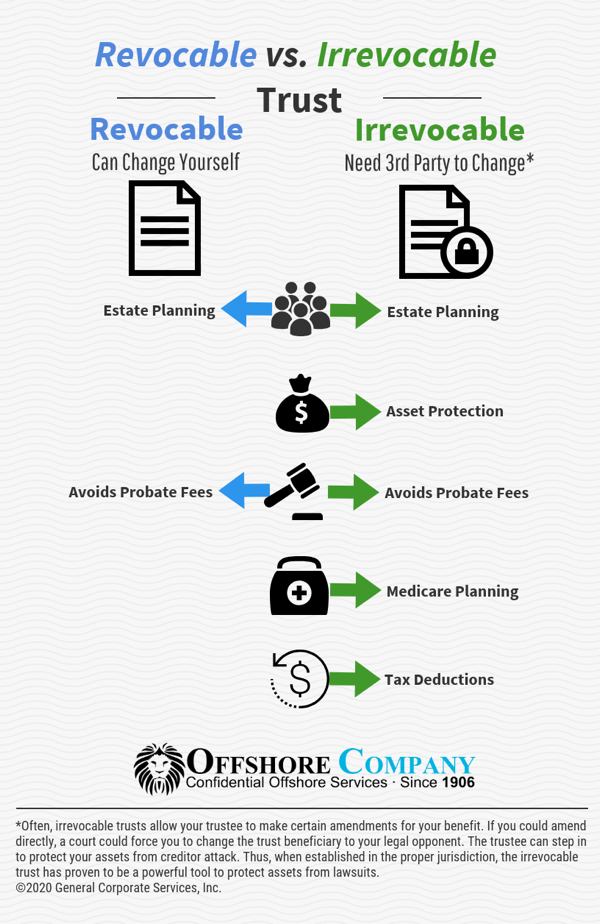Offshore Trustee Solutions for Global Tax Optimization and Asset Protection
Offshore Trustee Solutions for Global Tax Optimization and Asset Protection
Blog Article
The Various Kinds Of Offshore Trustees and Their Features Described
Each classification-- varying from specialist and company trustees to specific and hybrid trustees-- serves distinct features that can substantially influence depend on management. Company trustees provide durable conformity and financial approaches, while private trustees offer a personal touch, albeit with potential restrictions.
Business Trustees
Business trustees play a crucial function in the management of depends on, specifically in overseas jurisdictions where regulative frameworks can be complex. These entities, commonly established as corporations, have the requisite expertise and sources to handle count on properties successfully, making certain conformity with regional and international legislations. Their organized administration allows for constant decision-making and the ability to adjust to transforming laws.

Furthermore, corporate trustees frequently have accessibility to a more comprehensive range of monetary devices and financial investment techniques, which can improve the depend on's efficiency (offshore trustee). Their professional strategy reduces dangers linked with mismanagement and problems of interest, as they follow defined fiduciary criteria
Additionally, company trustees can use specific solutions, including tax obligation preparation, estate administration, and conformity oversight, all of which are vital for enhancing the count on's goals. Their involvement is crucial for clients looking for efficient and trustworthy trust administration in complex offshore landscapes.
Person Trustees
Private trustees function as a crucial alternative to business trustees in the monitoring of trust funds, specifically in situations where a personal touch and experience with the beneficiaries may enhance trust management. These trustees are typically family members, friends, or relied on partners who have a deep understanding of the specific demands and dynamics of the family or team included.
One of the key advantages of designating an individual trustee is the capacity to promote strong partnerships with beneficiaries. This individual connection can lead to even more empathetic decision-making, specifically when sensitive concerns occur. Individual trustees might also have versatility in managing depend on assets, permitting tailored approaches that line up with the beneficiaries' values and demands.
However, possible downsides consist of the specific trustee's ability to take care of complicated monetary issues or legal responsibilities, which could lead to mismanagement. Ultimately, the effectiveness of an individual trustee pivots on their ability to stabilize individual understanding with audio fiduciary practices.
Specialist Trustees
Specialist trustees play a critical duty in depend on management, particularly for those seeking expertise in complicated monetary and lawful issues. These entities or people generally have specialized expertise in locations such as asset management, tax obligation preparation, and compliance with international policies. Their expert history permits them to navigate the complex landscape of overseas depends on, making sure that the depend on operates within lawful frameworks while optimizing financial end results.
Among the key functions of specialist trustees official site is to supply impartiality and objectivity in managing depend on properties. This nonpartisanship helps to mitigate prospective problems of interest that might develop when member of the family or good friends take on trustee duties. Furthermore, professional trustees can provide a degree of stability and continuity that is often lacking in individual trusteeship, particularly in circumstances entailing generational transitions or modifications in family members dynamics.
Moreover, specialist trustees are proficient at preserving thorough records and supplying clear reporting to recipients. This accountability promotes trust fund and self-confidence among stakeholders. Eventually, involving a specialist trustee can enhance the overall efficiency of depend on management, ensuring that the settlor's objectives are honored which the recipients obtain their rightful privileges in a prompt fashion.
Family Trustees
Household trustees play a substantial duty in the management of trusts, particularly when the count on is established to benefit family members. These trustees are commonly people that have an individual link to the recipients, such as parents, siblings, or prolonged household. offshore trustee. Their intimate understanding of household characteristics enables them to make educated decisions concerning the administration of the count on assets and the distribution of benefits
Among the key features of family trustees is to ensure that the wishes of the trust fund maker, or settlor, are recognized. This consists of adhering to particular instructions connected to property administration, investment strategies, and circulations. Family members trustees may also provide psychological support and assistance to recipients, aiding them navigate the complexities of trust fund circulations and monetary issues.

However, being a household trustee comes with duties and possible problems of interest. The trustee should balance personal partnerships with fiduciary responsibilities, making sure view justness and transparency in all activities handled behalf of the depend on. Appropriate interaction and documentation are necessary to preserve count on amongst member of the family and to copyright the honesty of the trust administration procedure. Inevitably, household trustees work as stewards of the household's financial heritage.
Hybrid Trustees
Crossbreed trustees represent a distinct blend of individual link and expert expertise in trust administration. This cutting-edge method integrates the benefits of both private and business trustees, consequently using a customized option to fulfill diverse client needs. Hybrid trustees commonly include a trusted family members member or buddy functioning along with a professional trustee or count on business, making sure both emotional understanding and technical see page effectiveness in taking care of count on properties.

This combination verifies particularly beneficial in complicated family members scenarios or when there are multiple beneficiaries with differing interests. Crossbreed trustees can navigate the ins and outs of family partnerships while at the same time using durable financial investment techniques and run the risk of management techniques. Ultimately, crossbreed trustees function as a bridge in between personal dedication and specialist persistance, improving the overall effectiveness of trust fund administration.
Conclusion
Company trustees offer proficiency and compliance, while private trustees use individual connections. Professional trustees highlight impartial asset monitoring, whereas family members trustees navigate the intricacies of partnerships alongside fiduciary tasks.
Each group-- varying from company and professional trustees to private and hybrid trustees-- offers unique features that can dramatically impact count on administration. Company trustees supply robust compliance and economic approaches, while private trustees supply a personal touch, albeit with potential limitations. Hybrid trustees often are composed of a trusted household member or close friend functioning alongside an expert trustee or depend on company, making certain both emotional understanding and technical proficiency in handling count on possessions.
Company trustees supply expertise and conformity, while specific trustees use personal connections. Specialist trustees stress neutral property management, whereas household trustees browse the complexities of relationships alongside fiduciary tasks.
Report this page